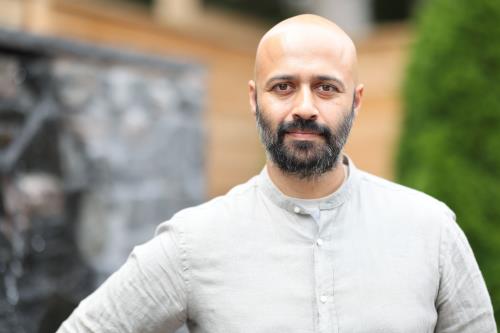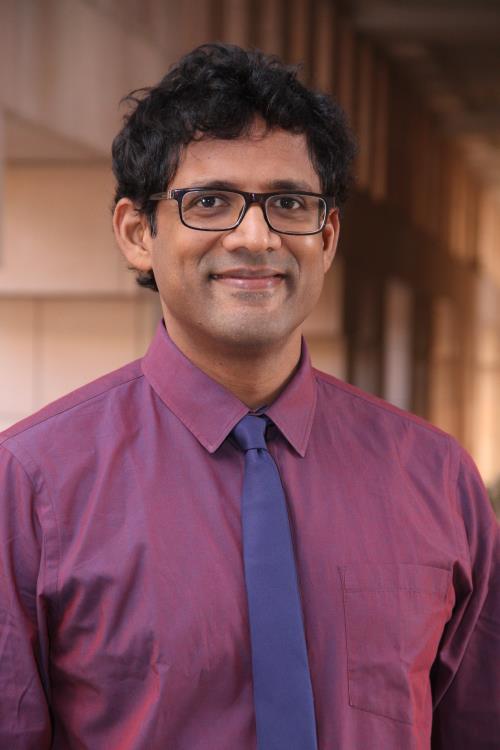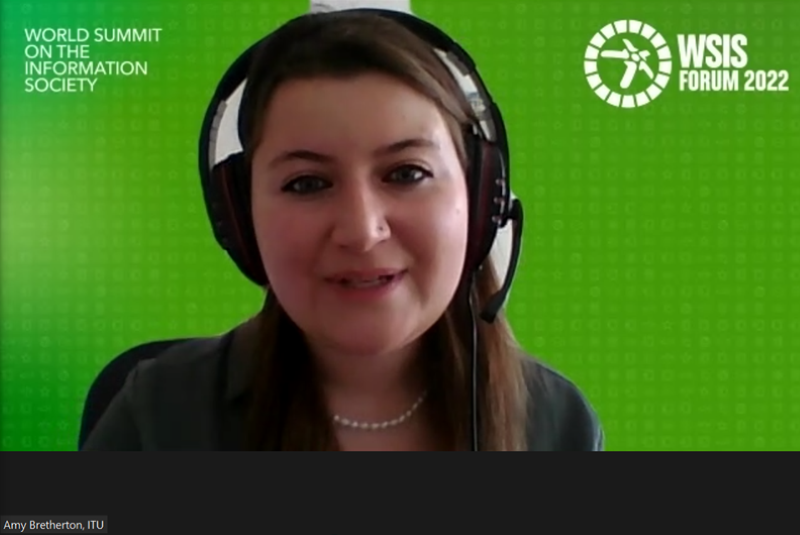How ICTs Create Happiness
WSIS
Session 266
While happiness has many different definitions, it is often described as involving positive emotions and life satisfaction. Scientists agree that connection, compassion, gratitude, and mindfulness are positively related to happiness.
ICTs have in the last few decades transformed substantially several aspects of our everyday life. New digital opportunities can make our lives easier, more efficient, and more joyful. ICTs are thought to have a positive impact on happiness, for example by facilitating the building and practice of skills such as gratitude or mindfulness. ICTs also proved to be crucial during the pandemic, as they helped us stay connected.
This session will focus on efforts that aim at ensuring happy and healthy lives for all ages.

A purpose-driven innovator & brand builder, Keith has led the development and launch of over $1 billion of new products & businesses in the health & wellness and food industries. Keith leads SuperBetter to achieve its mission of unlocking the heroic potential of 50 million youth around the world. The unique SuperBetter methodology brings the psychology of game play to real life to improve resilience, mental health and life skills. Over 1 million people have played the SuperBetter web and mobile app.

Jay Vidyarthi is an attention activist and the founder of Still Ape - the world's first UX design studio focused exclusively on mindfulness, compassion, and wellbeing. The vision is a society where access points to self-care and collective transformation are as diverse as the people who need them. He also teaches mindfulness, inspiring people to reclaim their freedom of attention in the face of constant distraction.
As a human-centered designer, Jay helped create Muse: the brain sensing headband, Sonic Cradle, the Healthy Minds Program, Brightmind, and 20+ more mindful technologies. He helped start the Mindful Society Global Institute and serves on its advisory council. He’s taught design at major institutions and his work and ideas have been recognized and featured internationally (Harvard, MIT, CHI, UToronto, Mindful.org, NYU Stern, Forbes, Vice, World Happiness Week, Fast Company, TED, TransTech200, UX Awards, etc).

Ester Maestro is Head of European Projects at Fundación Cibervoluntarios, a non-profit promoting the social use of technology to foster citizen's rights, opportunities and participation at national and international levels, always focusing on how technology can change people's lives for good through Digital Skills Training. Ester gives talks at international conferences, focused on social innovation, citizen participation, the impact of technology in our society, inclusion and cybervolunteering, topics she has earlier covered at the WSIS forum. Cibervoluntarios is shaped by social entrepreneurs, and for 20 years it has been promoting the use and knowledge of technology as a means to alleviate social gaps, generate social innovation and promote citizen empowerment, developing for it a network of more than 1.800 Cybervolunteers and more than 1.300 grassroots organizations in Spain. We work to put people at the center of social transformation, to connect citizens, to act as a network and as a laboratory for social projects. We believe in technology for social change. Ester has been involved with Cibervoluntarios since its creation in 2001, and she has worked for the Foundation on different national and European projects throughout the years, coordinating successfully several of them.

Raj Raghunathan is Zale Centennial Professor of Business at the McCombs School of Business at UT Austin. He is interested in how people’s judgments and decisions impact their happiness and fulfillment. Raj’s work has appeared in top journals such as The Journal of Marketing, The Journal of Consumer Research, The Journal of Marketing Research, and The Journal of Personality and Social Psychology. His work has also been cited in several mass media outlets, including The Atlantic, The New York Times, Fortune, Forbes, and Harvard Business Review.
Raj’s Psychology Today blog, Sapient Nature, has over 2 million page views. His online course on Employee Happiness, was rated as a Top MOOC (Massive Open Online Course) of 2019, and currently has over 6000 students. His previous MOOC has over 400,000 students from 196 countries, and was voted the Top MOOC of 2015, 2016, 2017, & 2018, and is currently one of the Top 250 MOOCs of all time. Raj’s book, If you’re so smart, why aren’t you happy?, has been translated into 13 languages, and was featured in the Atlantic, Time, Guardian, Times of India, Live mint, and Mid-day. Raj’s TED talk was viewed live (on STAR TV) by over 17 million people worldwide.

Kathryn Burnham works as Farm Radio International’s Radio Network Services Manager. Katie brings her experience in journalism and communications to her position as Manager of Farm Radio International's Radio Network Service. Based in Ottawa, Canada, Katie is in regular contact with more than 1,300 broadcasting partners across Africa. She works to ensure these radio partners have the information and training they need to deliver informative, interactive, and effective programming to their communities.
.jpg?maxwidth=500)
Kyle Rand is the cofounder and CEO of Rendever, a virtual reality (VR) platform helping seniors combat social isolation through the power of shared experiences. Having always felt a close kinship to seniors, Kyle grew up volunteering at a senior living community and later went on to study cognitive decline in the aging population at Duke University. After a personal experience moving his own grandmother into a senior living community, Kyle experienced first-hand the effects social isolation has on seniors and cofounded Rendever as a result. Under Kyle’s leadership, Rendever is changing the lives of thousands of seniors in more than 400 senior living communities worldwide. Most recently, Kyle oversaw Rendever’s collaboration with UC Santa Barbara to start a multi-site clinical trial to observe the positive impact VR has on seniors.

-
 C1. The role of governments and all stakeholders in the promotion of ICTs for development
C1. The role of governments and all stakeholders in the promotion of ICTs for development
-
 C2. Information and communication infrastructure
C2. Information and communication infrastructure
-
 C3. Access to information and knowledge
C3. Access to information and knowledge
-
 C5. Building confidence and security in use of ICTs
C5. Building confidence and security in use of ICTs
-
 C7. ICT applications: benefits in all aspects of life — E-health
C7. ICT applications: benefits in all aspects of life — E-health
-
 C10. Ethical dimensions of the Information Society
C10. Ethical dimensions of the Information Society
-
 C11. International and regional cooperation
C11. International and regional cooperation
-
 Goal 3: Ensure healthy lives and promote well-being for all
Goal 3: Ensure healthy lives and promote well-being for all
-
 Goal 4: Ensure inclusive and equitable quality education and promote lifelong learning opportunities for all
Goal 4: Ensure inclusive and equitable quality education and promote lifelong learning opportunities for all
-
 Goal 16: Promote just, peaceful and inclusive societies
Goal 16: Promote just, peaceful and inclusive societies
-
 Goal 17: Revitalize the global partnership for sustainable development
Goal 17: Revitalize the global partnership for sustainable development







